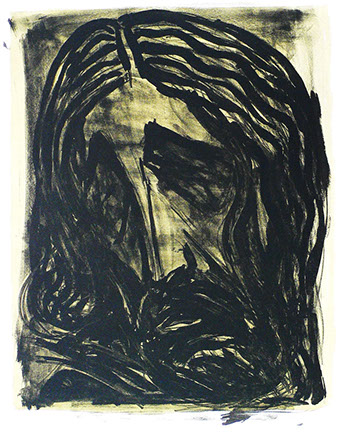
Chapter 11 (Saturday of the First Week of Lent)
Then Zophar the Naamathite answered:
‘Should a multitude of words go unanswered,
and should one full of talk be vindicated?
Should your babble put others to silence,
and when you mock, shall no one shame you?
For you say, “My conduct is pure,
and I am clean in God’s sight.”
But O that God would speak,
and open his lips to you,
and that he would tell you the secrets of wisdom!
For wisdom is many-sided.
Know then that God exacts of you less than your guilt deserves.
‘Can you find out the deep things of God?
Can you find out the limit of the Almighty?
It is higher than heaven—what can you do?
Deeper than Sheol—what can you know?
Its measure is longer than the earth,
and broader than the sea.
If he passes through, and imprisons,
and assembles for judgement, who can hinder him?
For he knows those who are worthless;
when he sees iniquity, will he not consider it?
But a stupid person will get understanding,
when a wild ass is born human.
‘If you direct your heart rightly,
you will stretch out your hands towards him.
If iniquity is in your hand, put it far away,
and do not let wickedness reside in your tents.
Surely then you will lift up your face without blemish;
you will be secure, and will not fear.
You will forget your misery;
you will remember it as waters that have passed away.
And your life will be brighter than the noonday;
its darkness will be like the morning.
And you will have confidence, because there is hope;
you will be protected and take your rest in safety.
You will lie down, and no one will make you afraid;
many will entreat your favour.
But the eyes of the wicked will fail;
all way of escape will be lost to them,
and their hope is to breathe their last.’
Musical Selection
There’s a wideness in God’s mercy,
like the wideness of the sea.
There’s a kindness in God’s justice,
which is more than liberty.
There is no place where earth’s sorrows
Are more felt than up in heaven;
There is no place where earth’d failings
Have such kindly judgment given.
For the love of God is broader
than the measures of the mind,
and the heart of the Eternal
is most wonderfully kind.
But we make God’s love too narrow
by false limits of our own,
and we magnify its strictness
with a zeal God will not own.
There is plentiful redemption
In the blood that has been shed;
There is joy for all the members
In the sorrows of the Head.
There is grace enough for thousands
Of new worlds as great as this;
There is room for fresh creations
In that upper home of bliss.
If our love were but more simple,
we should rest upon God’s word,
and our lives would be illumined
by the presence of our Lord.
turn our hearts back to you,
that we may commit our lives to your praise and service,
seeking always the one thing necessary
and providing for the needs of others.
We ask this through our Lord Jesus Christ, your Son,
who lives and reigns with you in the unity of the Holy Spirit,
God for ever and ever. Amen.